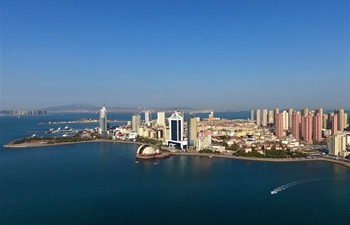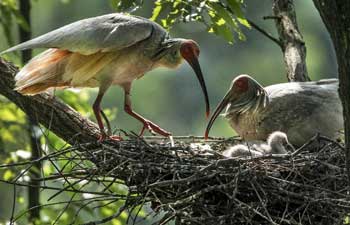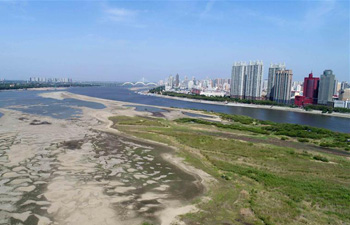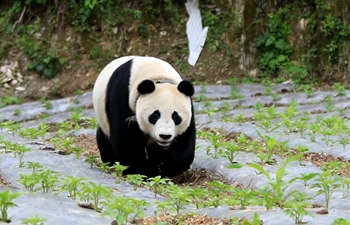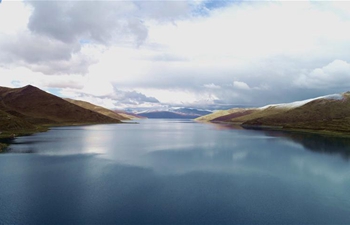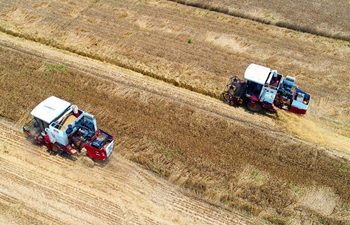LANZHOU, June 4 (Xinhua) -- Chinese researchers have found huge amount of diversified particles in the dust on the Gobi desert around the border of China and Mongolia.
The atmospheric particles may have effects on ecosystems and human health, according to the researchers from Lanzhou University.
Bioaerosols, a class of atmospheric particles, range in size from nanometers up to about a tenth of a millimeter. They are made up of living and dead organisms.
Bioaerosols can be bacteria, fungi or viruses. They exist in the lower atmosphere and can cause respiratory disease.
The researchers conducted the Dust-Bioaerosol Campaign from 2014, focusing on the origin, diversity and transport of bioaerosols along dust pathways in north China, where dust events affect vast area and large number of people.
They collected air samples through a filter and extracted the DNA.
The results showed large amount of bioaerosols present in dust on the Gobi desert indicating a remarkable increases in bacteria during dust events, when the diversity of the bacteria also increased significantly.
The dust can carry many types of bacteria to downwind regions and may have an important impact on ecological environment, climate change and agriculture.
Nearly 1 billion tonnes of dust enters the atmosphere across Asia each year, according to the report. It mainly comes from the Gobi and Taklimakan deserts.




